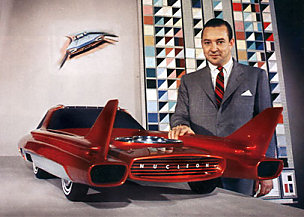
Posted on 06/18/2011 8:34:55 AM PDT by Libloather
Study: No savings at 62 mpg
by Automotive News
June 13, 2011 10:17 AM PDT
Raising federal fuel economy standards to as high as 56 mpg in the 2025 model year would yield fuel savings to consumers that more than offset higher vehicle prices, a new study found.
But lifting corporate average fuel economy to 62 mpg would result in vehicle price increases that exceed fuel savings over a five-year period, according to the nonprofit Center for Automotive Research.
The report highlights room for compromise on the Obama administration's preliminary proposal to raise CAFE to between 47 mpg and 62 mpg from the 2017 to 2025 model years.
Environmental groups have pushed for 62 mpg, while automakers have called for more study.
Current rules require a 35.5 mpg CAFE by the 2016 model year.
The center in Ann Arbor, Mich., is partially financed by the auto industry but this study was internally funded, [Center for Automotive Research] President Jay Baron said.
The June 11 report revises an earlier study in response to criticism by an environmental group, the International Council on Clean Transportation.
Among the latest findings:
•Technology changes would drive up the average cost of a new vehicle by between $3,810 and $11,390, depending on CAFE targets, from 2008 to 2025.
•Fuel savings would range from $5,917 to $8,339, depending on CAFE requirements, over the first five years of a 2025 car.
•Under 47 mpg, 51 mpg and 56 mpg targets, fuel savings would exceed the increased cost of a new vehicle.
(Excerpt) Read more at reviews.cnet.com ...
You’ll be able to see through the rice paper bodies of the new vehicles and be waist deep in the carnage on our highways.
Hell, why not specify 500 MPG?
Idiot politicians.
Why don’t they just raise it to 200,000 MPG, that way you would never have to pay for gas unless you own the car for over decade?
And don’t trouble me with physics......
These people are insane.
The lesson we should have learned about CAFE is that you can’t expect to increase the conservation of a commodity by making it cheaper to use.
Have there been any studies that indicate such vehicles would even last 5 years, or that consumers would keep such a vehicle for 5 years? They would be pretty darned light and flimsy, wouldn’t they?
If there are no studies like that, then why match the cost to 5 years of savings? Two years seems more practical. One year seems more realistic, as volatile as fuel costs are.
The greatest shortcomings of marxism and fascism is that they fail to take into account human nature. Driving will become a luxury reserved for the ruling class.
Also, I would think that for a vehicle to reach 62 MPG, batteries would be involved. Does the analysis include at least one cycle of replacing the batteries?
For even better fuel economy, there's the horse and buggy, but then you have a whole different class of activists to worry about.

These people are insane
While gas mileage would be nice, repair costs would be rather annoying on the Ford nucleon.
If you rear-end my Ford Nucleon, you’re gonna be in serious trouble. Hope your air bags are radiation proof :)
And a lack of understanding of Newtonian Physics. There seems to be a great deal of Magical Thinking
Europe, Japan and South Korea use more imported oil than we do, DO NOT HAVE “Cafe” standards, and manage to sell cars that average more miles per gallon than the U.S. market.
OMG fuel prices alone can actually induce the desire for and purchase of automobiles that, on average, get more miles per gallon!!!!!!!
Can the Cafe standards, can all the fuel subsidies, tax breaks and the like for fuel, and let the intersection of energy markets with automobile markets work - which it will.
Get the politicians economic micromanaging out - totally out.
There will never be “savings” of any kind from a high mpg vehicle, even if the mpg was to be 200mpg or 1000mpg.
If those kind of vehicles were to be manufactured, then the consumption of gasoline would go down. But, if the consumption were to go down, government at all levels would find themselves losing tax revenue. So, the government solution to decreased consumption would be to raise the taxes on whatever consumption remains. But, that’s not all. Government is already thinking of ways to charge the consumer on miles driven. So, it will be a double whammy, with higher gas prices and miles driven charges.
Big Government, and government intervention, is never about saving people money. Government always makes things more complicated and more costly.
How many of the presidential candidates have called for the complete repeal of the CAFE standards? Heck, how many elected officials have called for their complete repeal?
But a national speed limit of 5-10 mph would solve that problem and be certain, there's a democrat somewhere in congress stupid enough to propose just that.
Disclaimer: Opinions posted on Free Republic are those of the individual posters and do not necessarily represent the opinion of Free Republic or its management. All materials posted herein are protected by copyright law and the exemption for fair use of copyrighted works.